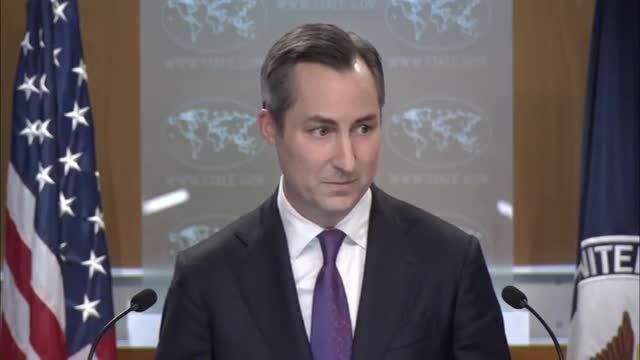US explores diplomatic solutions amid escalating Israel Hezbollah tensions
September 30, 2024 | US Department of State
This article was created by AI summarizing key points discussed. AI makes mistakes, so for full details and context, please refer to the video of the full meeting. Please report any errors so we can fix them. Report an error »

During a recent government meeting, officials discussed the ongoing diplomatic efforts regarding the situation between Israel and Hezbollah, emphasizing the importance of a broader resolution amid rising tensions. The U.S. is currently exploring commercial flight options for citizens in the region, recalling that many evacuated in 2006 via ferries. While commercial flights are available, no definitive decisions have been made regarding evacuation strategies.
The focus of U.S. diplomatic efforts remains on the 21 JCSR proposal, which aims to establish a ceasefire that would facilitate a broader diplomatic resolution. However, officials noted that they have yet to receive a direct response from Israel regarding this proposal. Israeli Prime Minister Netanyahu has expressed mixed signals, initially dismissing the proposal but later indicating some openness to U.S. involvement in de-escalating tensions.
The meeting also highlighted the complexities of military actions in the region. While U.S. officials acknowledged that military pressure can sometimes aid diplomatic efforts, they cautioned that it may also lead to miscalculations and unintended consequences. The U.S. continues to communicate with Israel about these dynamics, supporting Israel's right to defend itself while advocating for a diplomatic resolution as the most effective means to ensure the safety of both Israeli and Lebanese citizens.
As tensions escalate, Hezbollah has stated its intention to continue attacks, raising concerns about the potential for further conflict. The U.S. remains engaged in discussions with Israel, emphasizing the need for a careful balance between military action and diplomatic negotiations.
The focus of U.S. diplomatic efforts remains on the 21 JCSR proposal, which aims to establish a ceasefire that would facilitate a broader diplomatic resolution. However, officials noted that they have yet to receive a direct response from Israel regarding this proposal. Israeli Prime Minister Netanyahu has expressed mixed signals, initially dismissing the proposal but later indicating some openness to U.S. involvement in de-escalating tensions.
The meeting also highlighted the complexities of military actions in the region. While U.S. officials acknowledged that military pressure can sometimes aid diplomatic efforts, they cautioned that it may also lead to miscalculations and unintended consequences. The U.S. continues to communicate with Israel about these dynamics, supporting Israel's right to defend itself while advocating for a diplomatic resolution as the most effective means to ensure the safety of both Israeli and Lebanese citizens.
As tensions escalate, Hezbollah has stated its intention to continue attacks, raising concerns about the potential for further conflict. The U.S. remains engaged in discussions with Israel, emphasizing the need for a careful balance between military action and diplomatic negotiations.
View the Full Meeting & All Its Details
This article offers just a summary. Unlock complete video, transcripts, and insights as a Founder Member.
✓
Watch full, unedited meeting videos
✓
Search every word spoken in unlimited transcripts
✓
AI summaries & real-time alerts (all government levels)
✓
Permanent access to expanding government content
30-day money-back guarantee
